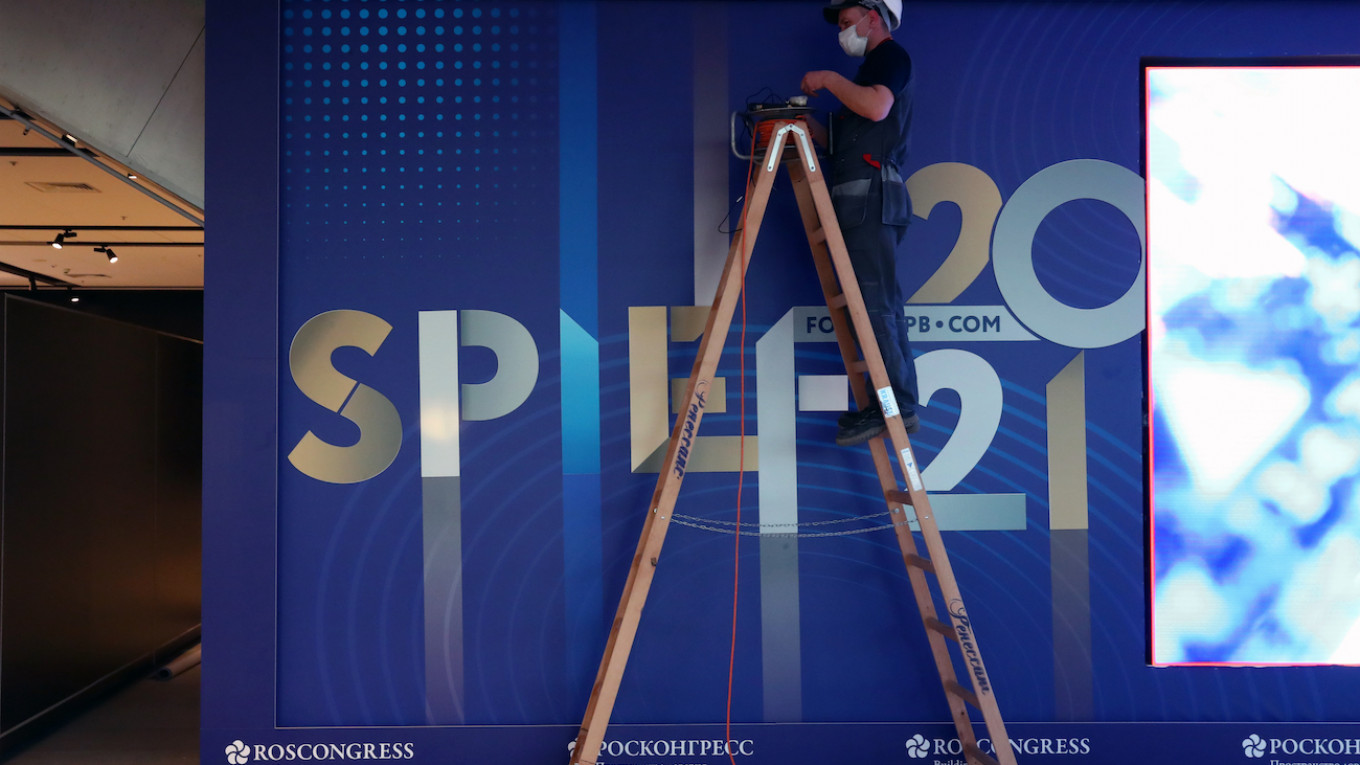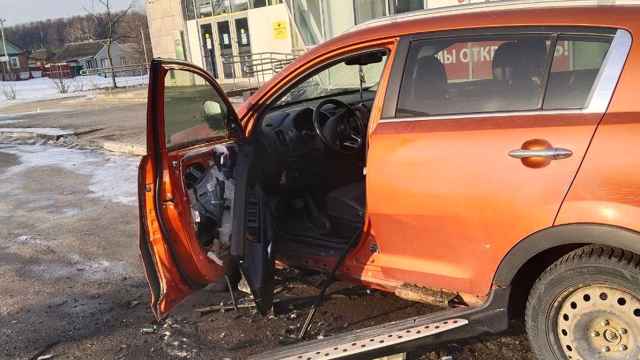Russia’s flagship business conference — the St. Petersburg International Economic Forum (SPIEF) — will return Wednesday following its cancellation last year due to the coronavirus.
The annual forum, hosted in Russian President Vladimir Putin’s home city, is seen as Russia’s answer to the World Economic Forum’s annual Davos forum and is being billed as the latest milestone in Russia’s exit from the pandemic.
“Nobody in the world has conducted face-to-face events of this magnitude since the outbreak of the pandemic,” St. Petersburg Governor Alexander Beglov told a local radio station Monday.
The conference is a “long-awaited and symbolic event for the whole world,” said Igor Maksimetsev, rector of St. Petersburg’s State University of Economics, in a statement published by the forum’s organizers. “The staging of SPIEF symbolizes the renewal of the economy and social life, having overcome the challenges of quarantine.”
Russian state TV called the forum the “biggest meeting since the start of the pandemic.”
Economic debate
Putin is set to speak at SPIEF’s plenary session Friday, which he will attend in person, with Austrian Chancellor Sebastian Kurz and the Emir of Qatar, Sheikh Tamim bin Hamad al-Thani, joining him via video link.
Putin has only rarely attended public events since the start of the pandemic, and ministers, officials and public figures were previously required to undertake a two-week quarantine in order to meet the president in person.
Other keynote speakers include Central Bank chief Elvira Nabiullina, Finance Minister Anton Siluanov and Economy Minister Maxim Reshetnikov, who will lay out their visions for Russia’s future economic development as it comes out of the pandemic.
The session could be one of the most public forums for Russia’s different economic camps to make their pitches for Russia’s post-coronavirus economy policy. Russia’s Central Bank and Finance Ministry typically favor a more conservative economic policy, while Reshetnikov’s Economy Ministry, which is tasked with spurring growth, has publicly clashed with Nabiullina and Siluanov by calling for a more loose, higher-spending approach with lower interest rates.
Russian leaders say they hope the forum will strengthen Russia’s international business connections at a time of heightened political pressure between Russia and the West.
“The tougher the rhetoric at the political level, I would say, the more trusting and substantive is contact at the company-to-company level,” First Deputy Prime Minister Andrey Belousov said Monday.
Belousov added SPIEF had received more than 2,000 applications from foreign businesses and governments to attend the conference. The largest delegations will be from the U.S. and Qatar, which is investing heavily in the conference this year as a headline sponsor.
Meanwhile, some Russian entrepreneurs have hit out at SPIEF’s organizers. Anastasia Tatulova, owner of the Anderson chain of restaurants and state ombudsman for small and medium-sized businesses initially rejected an invitation to speak at the conference after organizers told her she would be required to pay the 960,000 ruble ($13,000) registration fee to be able to speak on a two-hour panel.
Several other small business owners as well as government-appointed industry representatives and ombudsmen also reported being invited to speak on panels at the conference, only to be asked to pay for a ticket, according to the independent Novaya Gazeta paper.
“SPIEF is positioned as a forum for communication between business and government,” Tatulova said. “But, as we can see, only businesses affiliated with the state, operating in raw materials or banking, or very large firms actually participate in the conference.”
Coronavirus concerns
The conference falls just days before St. Petersburg is set to welcome tens of thousands of fans for the first of seven matches of the delayed Euro 2020 football championship — another milestone and key test for restarting post-pandemic mass events.
But the forum comes at a time when coronavirus cases in Russia remain high and the nationwide vaccination campaign is struggling to gain momentum. The country’s case load over the last week has been higher than in any seven-day period since the end of March. In St. Petersburg, 390 new coronavirus patients are being admitted to the city’s hospitals every day, officials said Monday.
Due to coronavirus restrictions, attendance is limited to 5,000 guests — half the number in previous years — and guests must have a negative PCR coronavirus test to gain entrance to the forum. Despite Russia’s borders remaining closed to most countries due to the pandemic, forum attendees will be able to enter Russia on a special SPIEF-related visa, organizers said.
A Message from The Moscow Times:
Dear readers,
We are facing unprecedented challenges. Russia's Prosecutor General's Office has designated The Moscow Times as an "undesirable" organization, criminalizing our work and putting our staff at risk of prosecution. This follows our earlier unjust labeling as a "foreign agent."
These actions are direct attempts to silence independent journalism in Russia. The authorities claim our work "discredits the decisions of the Russian leadership." We see things differently: we strive to provide accurate, unbiased reporting on Russia.
We, the journalists of The Moscow Times, refuse to be silenced. But to continue our work, we need your help.
Your support, no matter how small, makes a world of difference. If you can, please support us monthly starting from just $2. It's quick to set up, and every contribution makes a significant impact.
By supporting The Moscow Times, you're defending open, independent journalism in the face of repression. Thank you for standing with us.
Remind me later.






